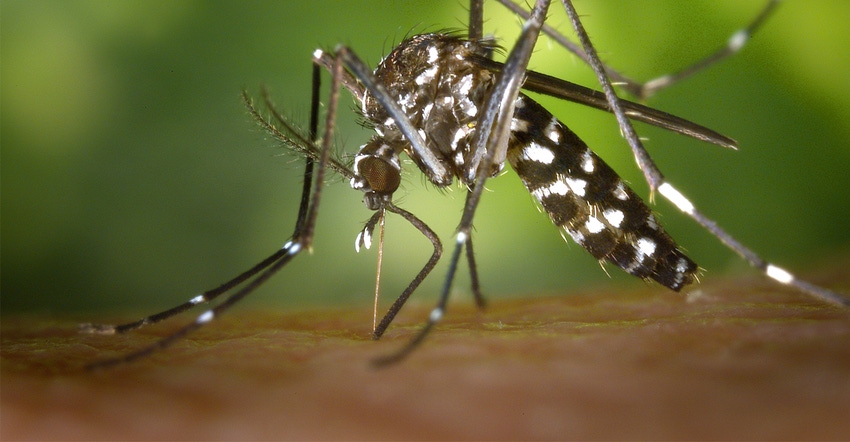July 21, 2017

First, let me toss in my disclaimer: This is an opinion column. And in my mind, with the exception of beneficial insects that have proven their value, the best bug is a quashed bug. There you have it — my bias, based on a lifetime of thousands of bug bites, stings and home invasions.
Last week, I received an odd news release from a land-grant college and a scientist that won’t be named. It was more of an editorial than a research finding — about why mosquitoes shouldn’t be eliminated.
This scientist had what she called an epiphany. “Morally, I’m just not OK with it [eliminating mosquitoes] anymore.” She had a lot of courage saying that — or maybe she doesn’t spend much time out in the real bug-eat-bug world.
In defense of mosquitoes
This entomologist is researching nonlethal ways to suppress mosquitoes’ ability to transmit diseases without killing them ��— but still calls it pesticide (pest-killing) research. Maybe it should be dubbed “pest health” research. Sorry, I’m buzzing off her objective.
She wants to produce an insecticide that would affect the bug’s biology, making it unable to transmit vector-borne diseases, and spare the life of the insect. Their redeeming value, she contends, is serving as food for fish, other predatory insects, birds, bats, salamanders, lizards, frogs and more.
“To yank [mosquitoes] out abruptly, I don’t know what that does,” she admits. It could potentially be dangerous to the food chain.
Let the little beauties fly?
Yes, this entomologist has gotten under my skin. Removing them from the food chain would likely leave more room for other more beneficial insects. That’s what nature is all about.
One who calls mosquitoes amazing and beautiful organisms hasn’t spent much time amethyst hunting or fishing in Alaska, Canada or the “land of 10 billion mosquitoes” (Minnesota). The mosquito’s risk as a pestilence purveyor is far higher than that of the deer tick. And I’m sure bats, birds and fellow “bug eaters” will find more protein and calories per bug-ounce in black flies, horse flies, beetles and other winged hordes.
I guess she’s forgotten the lethal impact of malaria. Maybe she hasn’t factored in the climate change effect on these purveyors of Zika, dengue, yellow fever, West Nile virus and various forms of encephalitis. Besides, does anyone really believe we could ever eliminate mosquitoes?
So maybe it’s time to change this bugologist’s assignment — apply her talents to a field that has a better chance of benefiting society. After all, American taxpayers are paying her salary.
You May Also Like




